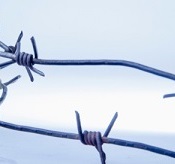Putting a Stop to Illegal Imports from Forced Uyghur Labor

The world has watched in horror as, starting in 2018, up to two million Uyghurs and other ethnic minorities have been arrested, relocated, or otherwise forced into internment centers in the Xinjiang Uyghur Autonomous Region in China. The government of the People’s Republic of China has separated thousands of Uyghur children from parents, forced methods of control on women, and inflicted physical and psychological torture and abuse on detainees. The government of China asserts that the highly secure network of camps is for voluntary education in anti-extremism.
Thousands of Uyghurs are transported outside of the camps to work involuntarily in Chinese factories or service jobs. This forced labor is behind a number of ubiquitous manufactured products, including numerous consumer goods and electronics. In July 2020, a New York Times investigation revealed that Uyghur forced labor was behind the manufacture of personal protective equipment (face masks), some of which were exported to and purchased in the United States.
The Chinese government’s programs against Uyghurs and apparent attempt “to eliminate an entire culture” has drawn condemnation by countries worldwide. One of the U.S.’s responses has been to discourage or otherwise prohibit business activities connected to human rights abuses and forced labor. In July 2020, multiple U.S. government agencies published the Xinjiang Supply Chain Business Advisory addressing supply chain risks and detailing multiple laws implicated, including Section 307 of the Tariff Act of 1930, Federal Acquisition Regulations, The Trafficking Victims Protection Act, the Uyghur Human Rights Policy Act of 2020, the Global Magnitsky Human Rights Accountability Act, and risk-programs for anti-money laundering and terrorist financing.
On September 14, 2020, following receipt of a petition by human rights groups, the U.S. Customs and Border Patrol (CPB) issued five sweeping Withhold Release Orders on products connected with Uyghur forced labor. These products may no longer lawfully be imported into the U.S. and include all products made with any labor from the re-education internment camp Lop County No. 4 Vocational Skills Education and Training Center in Xinjian Uyghur Autonomous Region, as well as certain hair products, apparel, cotton, and computer parts associated with specific industrial parks and manufacturers.
Unsurprisingly, outsiders and individuals may feel helpless or otherwise hard-pressed to improve the plight of Uyghurs and others being abused inside the Chinese government’s Xinjiang programs. One measure to assist in the effort is to not encourage illegal trade in forced-labor products. Individuals with knowledge of such activity may report their allegations directly to CBP, which can enforce the ban and issue fines. In August 2020, the CBP collected fines from importer Pure Circle U.S.A. for Stevia products associated with forced prison labor in China.
Insiders or others with knowledge of the exploitation, purchase, or use of banned forced-labor products in the U.S. supply chain might qualify as whistleblowers and assist in bringing a False Claims Act case or submitting a tip to the SEC, CFTC, or IRS. Such an action might be appropriate where the activity implicates, for example, Federal Acquisition Regulation FAR 52.222-50, Combating Trafficking in Persons, the Trafficking Victims Protection Act’s Crime of Forced Labor (18. U.S.C. sec. 1589), and OFAC’s Executive Order 13818, which imposes economic sanctions on persons even indirectly engaged in serious human rights abuses.
Read More:
- False Claims Act
- Our other posts on Customs Fraud
- Our other posts on Human Rights
- Our other posts on Money Laundering
- Whistleblower Types
- I Think I Have a Case
- Contact Us Confidentially
Tagged in: Customs Fraud, Human Rights, Money Laundering, Whistleblower Eligibility,